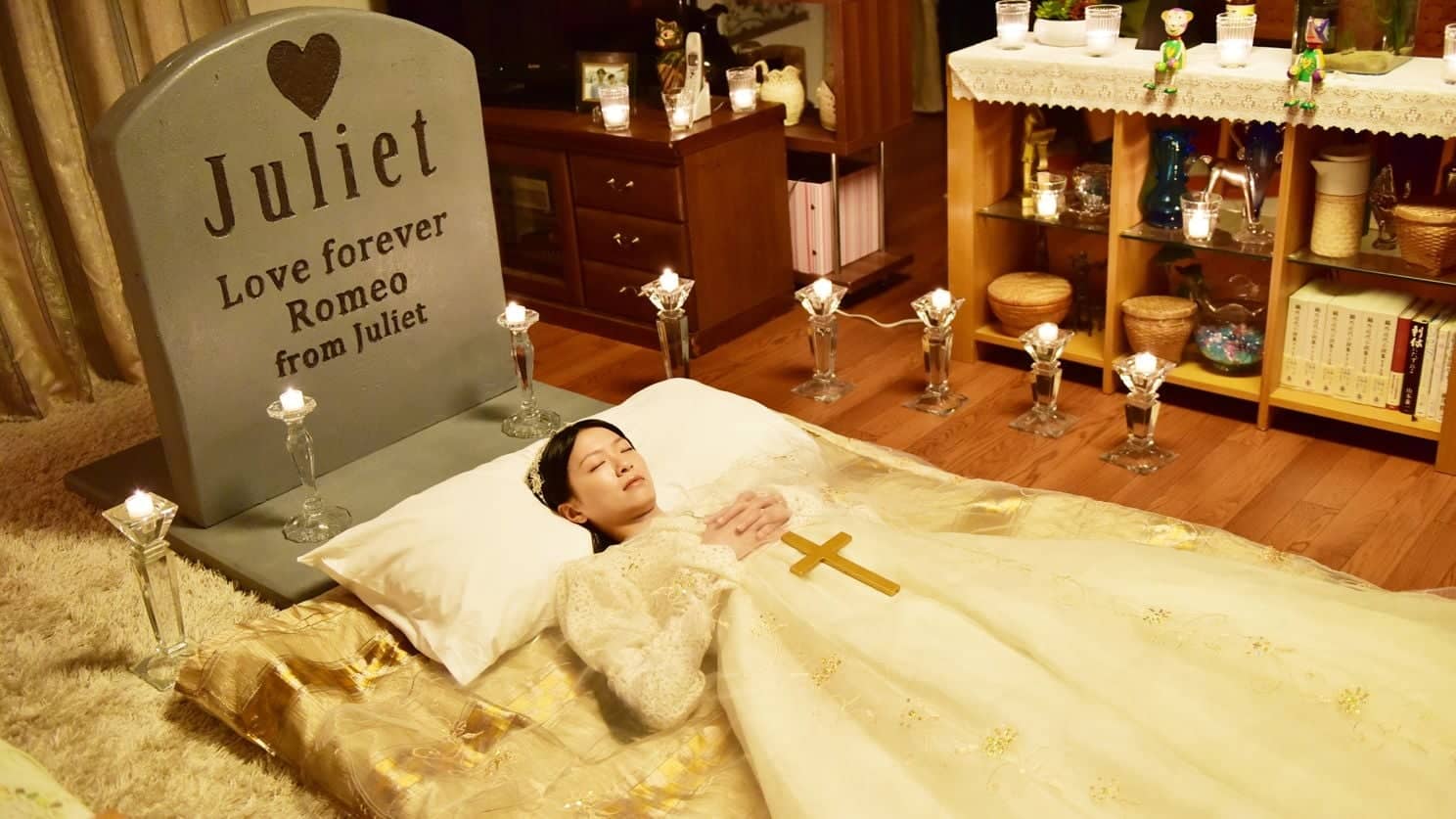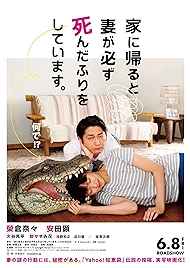Japanese screwball meets cute self-help in When I Get Home, My Wife Always Pretends to Be Dead, a film announcing what it’s about in its title. Every night, when salaryman Jun (Ken Yasuda) gets home from work, he finds his wife dead on the floor – killed by a knife, a bullet, an arrow, a stake through the heart. Chie (Nana Eikura) isn’t really dead, she’s pretending, and she absolutely expects her husband to play along and put on a fully convincing performance of finding her and falling to bits emotionally before he reaches for the phone to call the emergency services, at which point she will squeak open an eye, jump up, give him an adoring hug and then head off to the kitchen to serve up dinner.
Every evening a different fresh death, each more elaborate than the last. Yun is getting sick of it. FYI: these role-play games are not the prelude to sex-play games. There is no sex in this film.
It’s a true story and found its way to the screen via the Yahoo Messages board, where the perturbed real-life husband first sought answers to his unusual marital problem. The suggestions became a short, self-published book, and then this film, which plays like a comedy and asks a couple of questions of its own – how to make a happy marriage, how to lead a fulfilling life.
In the same way that the set-up in a Billy Wilder comedy (like The Apartment) delivered enough locomotive force to power the movie right to the end, When I Get Home’s basic premise keeps it motoring, as Jun asks around – the guys at work standing in for Yahoo Messages in director Toshio Lee’s adaptation – and as Chie keeps coming up with increasingly byzantine deaths.
On the way a couple of side roads – the new friendship between Chie and Jun and his work colleague Sôma (Ryôhei Ohtani) and wife Yumiko (Sumika Nono), and Chie’s relationship with Mr Yokoyama (Tôru Shinagawa), the lonely widower who owns the dry cleaning shop where she does some part time work (at her husband’s instigation, to put obstacles in the way of you know what).
Shot in that pastel-y orange/pink palette favoured by Japanese magazines dealing in entertainment and human interest stories, and with a perky rock soundtrack indicating this is most definitely made for domestic consumption, it bounces along in a way that would be eventually grating if Nana Eikura weren’t such a breath of fresh air – a lovely natural actor, a sweet presence – playing a character whose wackiness would be irritating in less subtle hands. She smiles, we smile.
No one else really matters, though Ken Yasuda gamely plays along as the husband too dull and lacking in imagination and empathy to work out what’s going on, Ohtani is solid as the work colleague offering laddish support, and Nono makes more of Yumiko than probably stood on the page – she’s little more than a “look what happens if you don’t indulge in mad games like Chie’s” made flesh, but Nono fills her out.
No prizes for guessing that in Chie’s past there is something that explains her strange behaviour, especially since the film seems to be populated with more than its share of grieving, lonely people, and if you’re not in the mood for a dawdling amble towards a big reveal that isn’t really anything of the sort, you might feel this could do with a bit of a trim somewhere in the middle.
But its unusual premise and its focus on the delivery of joy by whatever weird means necessary recommend it and, looked at another way, it’s cheaper than a session of cognitive behavioural therapy.
When I Get Home, My Wife Always Pretends to Be Dead – Watch it/buy it at Amazon
I am an Amazon affiliate
© Steve Morrissey 2022


